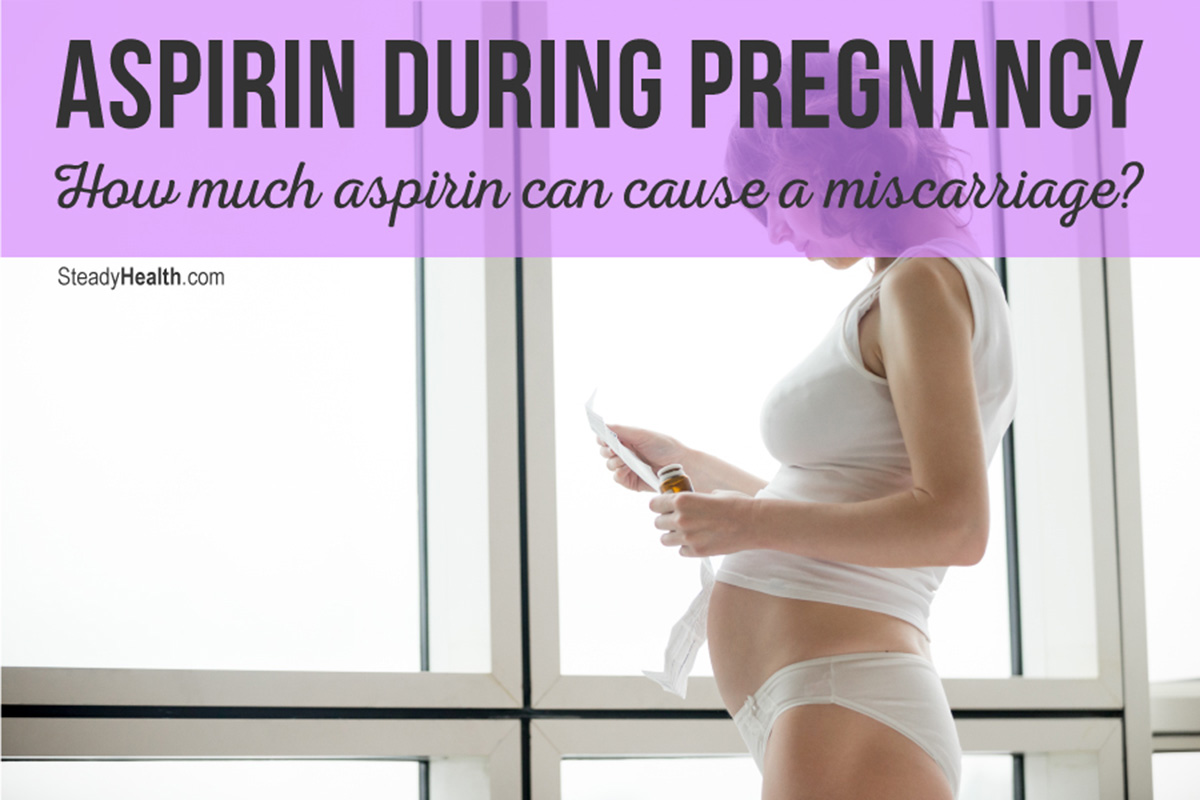Aspirin was, during my childhood, the only painkiller I'd ever heard of. It's not like I used to pop it like candy — the children's version came with this disgusting raspberry flavor that was supposed to make it more palatable, but which really only made it worse — but my mom occasionally gave me an Aspirin when I had a fever. Not only did she obviously think she was doing the responsible thing, any doctor would have agreed with her back then (in the dark ages).
More recently, the very real correlation between Reye's Syndrome and children who have taken Aspirin makes this particular painkiller a big no-no for modern parents.

What Is Aspirin?
Aspirin (acetylsalicylic acid) is a non-steroidal anti-inflammatory drug that is used to relieve pain, reduce fever, and fight inflammation. As a blood thinner of the antiplatelet variety, Aspirin is also used at low doses to prevent heart attacks and strokes in people at a high risk of these. [1, 2]
What Side Effects Can Aspirin Cause?
Among the more common side effects of Aspirin are stomach pain, nausea, vomiting, and heartburn. Those people who are taking Aspirin should alert their doctor if they experience hives (urticaria), a fast heartbeat, difficulty breathing, tinnitus (ringing in the ears), cold, clammy skin, hoarseness, and unusual-looking vomit or stools (namely those that contain blood, which doesn't always appear red), however. [1] These are symptoms of an Aspirin overdose, also called Aspirin poisoning. [3]
Who Can't Take Aspirin?
You should ask your doctor or pharmacist for advice before taking Aspirin if you:
- Are asthmatic, since Aspirin can trigger asthma attacks in some people. [4]
- Have a history of stomach ulcers or current have a known stomach ulcer. [5]
- Have kidney or liver disease.
- Have any kind of bleeding disorder.
- Suffer from uncontrolled hypertension.
- Are taking any prescription or over the counter medications regularly — they may interact badly with Aspirin.
- Are over 65 years old.
- Are under 16 years old.
- Have had any kind of allergic or other adverse reaction to Aspirin in the past.
- Are pregnant, currently trying to get pregnant, or breastfeeding. [6]
So, What Are The Real Risks Of Taking Aspirin During Pregnancy? How Much Aspirin Can Cause A Miscarriage?
One 2003 study came to the conclusion that using NSAIDs during pregnancy was associated with an 80 percent increased risk of miscarriage — and that was after adjusting for confounders! The risk of miscarriage was greatest, the study authors found, if the NSAID was taken right around the time of conception, or if the mother continued to use it for more than a week. The association between miscarriage and Aspirin use was weaker than that between miscarriage and other NSAIDs, such as Ibuprofen, however. [7]
While other studies have actually concluded that low-dose Aspirin in pregnancy may prevent miscarriage in women who have already suffered recurrent miscarriages [8], a more recent study found that taking low doses of Aspirin not an effective way to reduce the risk of miscarriage in most women [9].
Miscarriage is not, of course, the only concern when assessing the safety of taking Aspirin during pregnancy. Could Aspirin use in pregnancy cause birth defects? Research indicates that this is not generally true, though Aspirin use may be linked to a higher risk of gastroschisis, a condition where a baby is born with their intestines outside of the body, exiting through a hole in the belly button. [10] Prenatal exposure to Aspirin was not, however, found to affect a baby's cardiac function [11].
So, Should I Take Aspirin During Pregnancy?
What's it for? If you're trying to bring down a fever, cure a headache, or relieve pain, you've got better options. The long-term use of all painkillers is associated with potential adverse effects, and your risks depend on your own individual circumstances. For occasional aches and pains during pregnancy, however, you simply have much better options than Aspirin. One of the studies we've already mentioned [7] showed no association between paracetamol (Tylenol) use and miscarriage. Tylenol should, therefore, be your painkiller of choice during pregnancy unless your doctor recommends otherwise. (Although in some cases, you can also ask yourself if you really need a painkiller at all or if the ache will pass on its own.)
Those women who are taking low-dose Aspirin during pregnancy because they are at risk of heart attack or stroke should discuss the risks and benefits with their prescribing physician as well as the OBGYN who provides them with prenatal care.
If you've recently found out you're expecting and realize you have taken Aspirin around the time you conceived, don't worry too much, but also don't take Aspirin again without your doctor's say-so.
As for "how much Aspirin can cause a miscarriage" — there's no scientific answer to that particular question, although it is certainly well-known that Aspirin poisoning is bad news all around.
The bottom line is quite simple. If you already know you're pregnant, ask your doctor before taking any medication, avoid any medication that is known to have the potential to cause harm during pregnancy, but do take medications prescribed to you. If you have been prescribed Aspirin for a particular reason and are now concerned, discuss your questions with your treating doctor — because in some cases, the benefits may outweigh the risks.
- Photo courtesy of SteadyHealth.com

